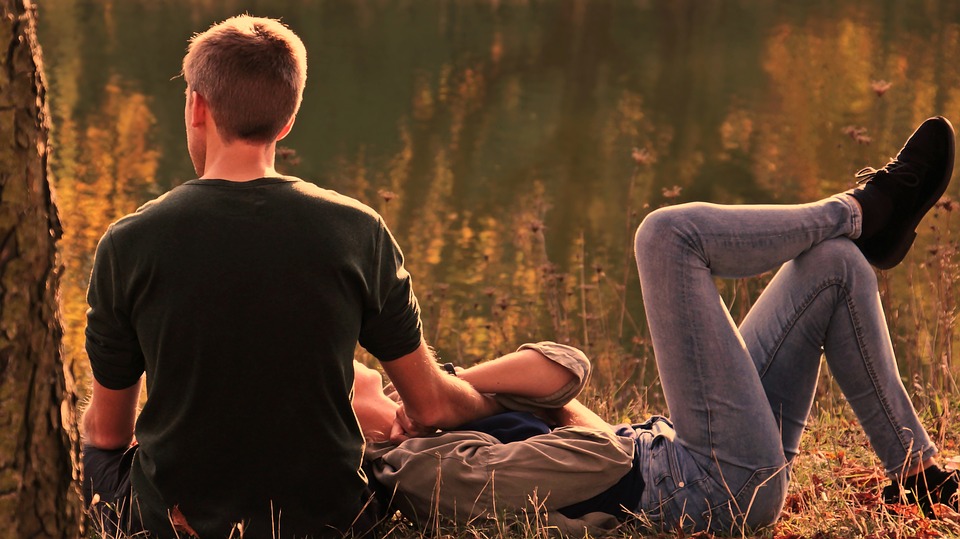
Take Your Medicine – Mental Health and Nature
Who knows why you get out there. Maybe it’s to have fun, to spend time with friends, to get away from the world, but have you ever thought that the reason might be something deeper? Have you ever wondered if perhaps there might be a connection between the earth and your very being?
I’m not trying to sound like a hippie here, or a treehugger, although I may have a little bit of each of those inside of me, I just want to get you thinking. And the truth of the matter is that we get very real, measurable, health benefits from nature. Perhaps our line of thinking isn’t too far off the track after all.
Let’s start with the obvious
It’s pretty clear that there are physical benefits to time spent outdoors. Often the things we do in nature involve physical activity. Hiking, canoeing, running, climbing trees, the list goes on. Regular exercise makes for a healthier life and lowers your risk of a whole host of diseases and problems.
But I don’t want to talk too much about the obvious stuff. You can find out more about the benefits of regular exercise from plenty of other websites.
But I do want to note that it’s not so cut and dry that you can simply separate physical health and mental health. These two aspects of health are inextricably linked, a problem with one can manifest as problems with the other and vice versa.
So here’s the deal: both your physical and mental health, indeed your entire well-being may be more directly tied to nature than you have ever before realized.
Consider the following
“We will never be truly healthy, satisfied, or fulfilled if we live apart and alienated from the environment from which we evolved.”
Stephen R. Kellert
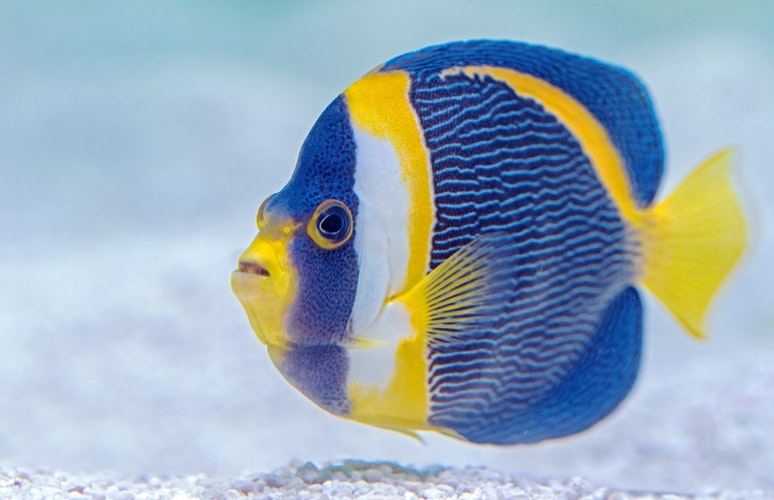
Now think about this. If you remove a fish from the ocean and stick him in a lake, will he do well? What if you put a grizzly bear in the desert? Or a camel in the jungle? Could some of these animals survive? Maybe for a while. But will they thrive? Most likely not.
Evolution is a slow process, people. We’re talking thousands, if not millions of years. Animals change over generations to become more in tune with and successful in the area they live in. A camel has evolved for the desert, a saltwater fish for the ocean. We are not exempt from this. Don’t think that being human makes us somehow special. We are animals too and we evolve just the same.
We are natural beings
For the vast majority of human history, we lived and worked and existed primarily in nature. This is where we evolved. We were molded by our environment. Our thoughts and feelings were molded by it. We hunted, we gathered, we farmed, we existed in constant contact with the earth and the sky, until, quite suddenly in the grand scheme of things, we didn’t.
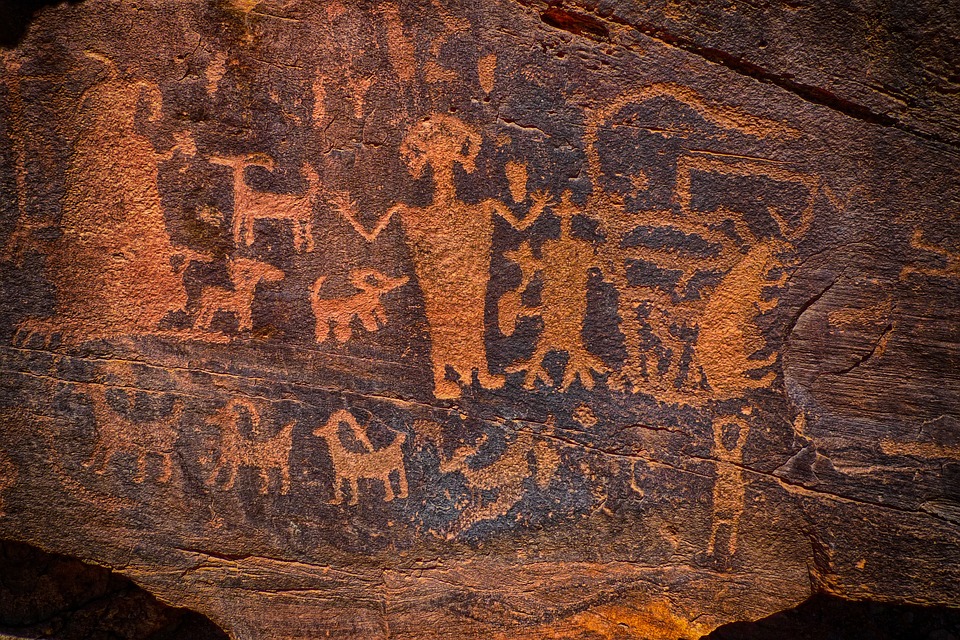
We moved out of the fields and into the factories and then the offices. We bought our food at indoor grocery stores. We built boxes on wheels to take us from home to office to all the other indoor places we go without having to spend any more time outdoors than what it takes to walk from the parking lot to the door and back again.
We now live in an age in which Americans spend only about 2% of their time outdoors.1 2
“Not only have the changes to our lifestyles been immense compared to those of our ancestors, but we go on advancing with the blind assumption that the human species has an unlimited capacity to adapt to the environment, no matter how far removed it is from that in which we evolved”
Gullone3
Remember the animal scenarios from before?
There is no question that mental illness is on the rise
I spent a lot of time in my college career reading about this stuff. The statistics are somewhat staggering. Here are just a few.
- According to Nami 4 1 in 5 adults in the U.S. experience mental illness in a given year
- As many as 50% of college students meet criteria for at least one psychiatric disorder in a given year5 6
- Nearly 27% of randomly sampled undergraduate students from 92 universities experienced anxiety in the two weeks prior to being surveyed7

This increase is surely a complex phenomenon and is influenced by a number of different things. But perhaps one that we too often forget, is that we evolved as citizens of the earth and have since removed ourselves from her, without regard to the consequences.
The Biophilia Hypothesis
At the risk of sounding too scientific for the layman here, I want to talk about the Biophilia Hypothesis introduced by famous biologist and foremost proponent of sociobiology, Edward O. Wilson. In short, the biophilia hypothesis says that it was evolutionary adaptive for our ancestors to be connected to nature in order to survive and this need for natural connection remains in our modern psychology.8
As our ancestors lived and adapted on the earth they passed down “biophilic learning rules.” These rules that we inherited cause us to more readily form associations with natural things than artificial ones. And this dictates our emotional responses from attraction to aversion and from peacefulness to anxiety. If that sounds kind of dense, don’t worry, just stick with me for a moment.
As the environment we live in rapidly changes from natural to increasingly artificial, these biophilic learning rules do not suddenly adapt. Remember how evolution is a slow process? It takes hundreds and thousands of years. So here we are, left in our artificial environment with our brains forming associations that don’t necessarily make sense for our current situation.
Think about it. If you go into downtown LA, or any city really, ask 100 random people what their biggest fear is and you’ll more than likely have several people tell you, “snakes.” Even though, these people, living in a city, will never encounter a snake as they go about their daily lives.
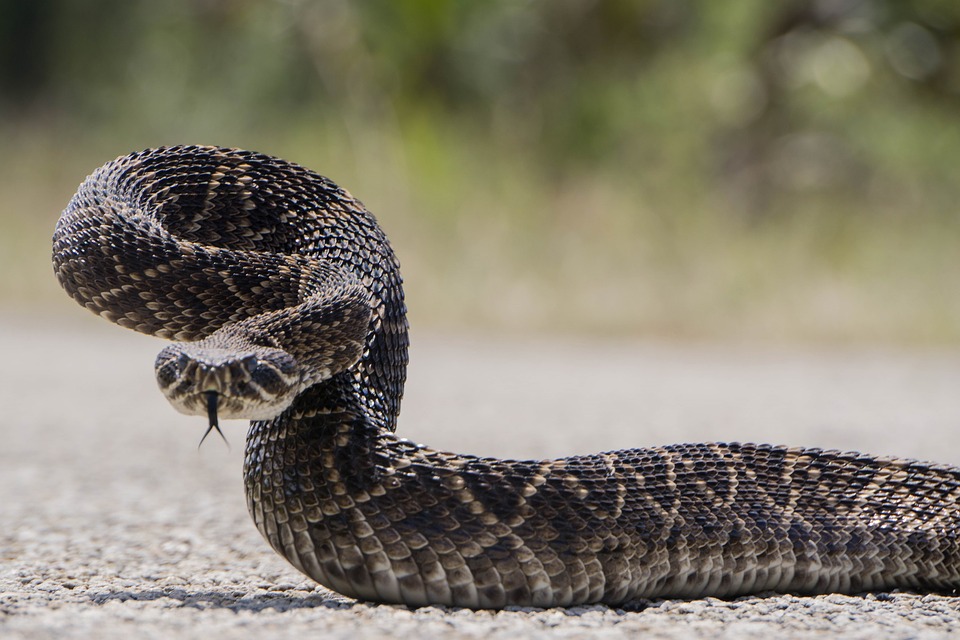
It would make much more sense for all these people to say, “cars,” because people die in car crashes every day.
But they don’t.
Because the biophilic learning rules passed down from our inherent connection to nature say, “snakes are scary, they can kill me, I have no idea what a car is.”
Along that same vein, take a look at this photo
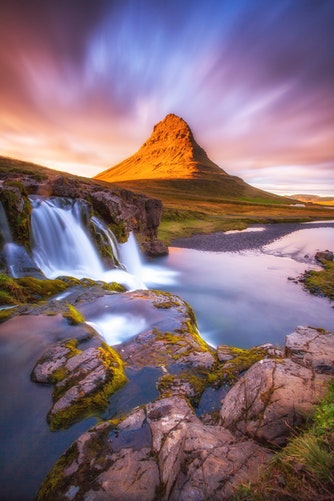
You love it right?
It’s beautiful. Absolutely stunning.
That emotional reaction to this particular picture might just be because, to your ancestors living thousands of years ago, the river meant fresh water, the lush and fertile ground meant plentiful food and the wide-open views meant plenty of advance notice if a predator was on their way over to try and eat them.
This stuff gets more and more fascinating as you dive into it. You can buy the book if you’re ready to jump down that rabbit hole. (you could also read any of the scientific journals cited below.) But can you see already how your connection to nature could play a huge role in your social, emotional and mental well-being?
So what exactly does nature do for your mental health?
This question opens up a can of worms. And it is, historically, a difficult question to answer in specific terms. But, as you begin to look for the health benefits of nature, you find them everywhere.
I’ve read countless studies that attempt to quantify these benefits and even conducted a few myself. Scientific papers can be pretty dense so I’ll summarize some of my favorites here so you don’t have to go sifting through the jargon.
- Outdoor leisure activities have been found to significantly decrease anxiety, and be more restorative than indoor leisure activities9 10
- Nature appears to help heal the whole person and facilitate increases in self-confidence and tranquility. It can help in the discovery of a more integrated, more desirable, and less conflicted self11
- Those who experience a greater connection to nature, experience greater psychological well-being, greater mindfulness, more positive emotions, and fewer negative emotions than those with a lesser connection12 13
- Spending time outdoors helps you think more clearly and reduces and prevents stress14 15
- Spending time in nature contributes to a greater connection to others and the world, social well-being, flourishing in personal lives, and increases in happiness16 17 18
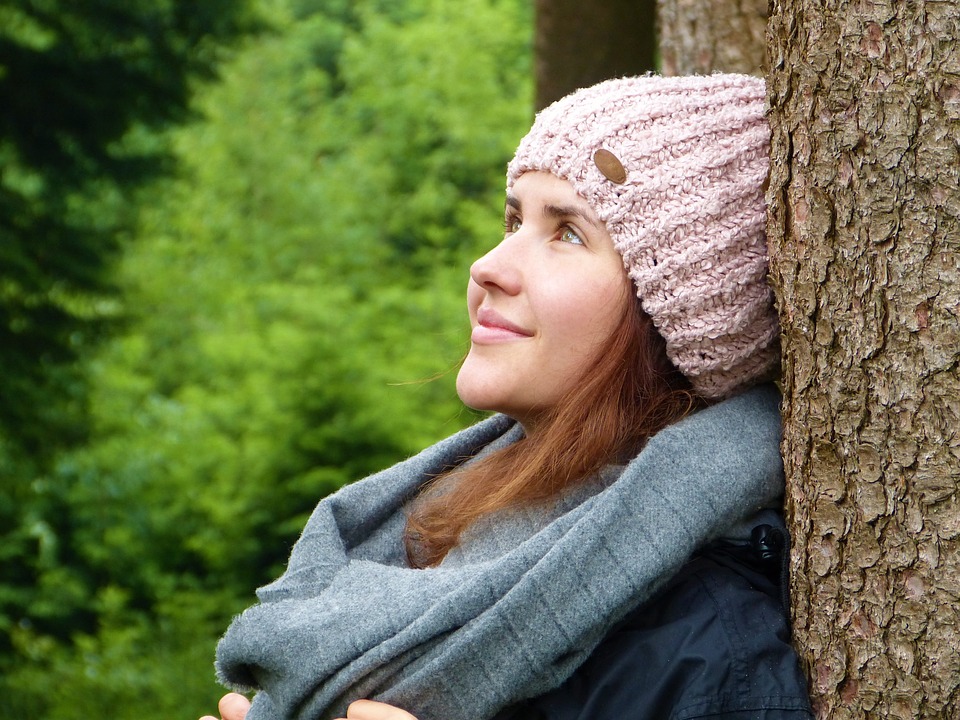
Now look me in the eyes and tell me that you don’t want those things.
You can’t do it!
Because that’s all we want!
That’s literally all, anybody wants. And they go searching for it in their jobs, in movie theaters, on Facebook and Instagram, in clubs and bars and fancy restaurants and fast cars. And they don’t find what they’re looking for. Even though what they’re looking for can be found with just a simple trip into the hills, or perhaps a barefoot walk in the city park, or maybe even right outside the front door.
So what should you do about it?
The benefits to our mental health and well-being that we receive from interaction with nature and the outdoors are, sadly, no longer built-in to our everyday schedules and lives.
So if we want them, we have to consciously choose to exit the artificial environments that surround us and set ourselves free. Step outside. Step into the sunlight. Go camping. Take a hike. Ride your bike to work. Spend a week in the woods if you can.
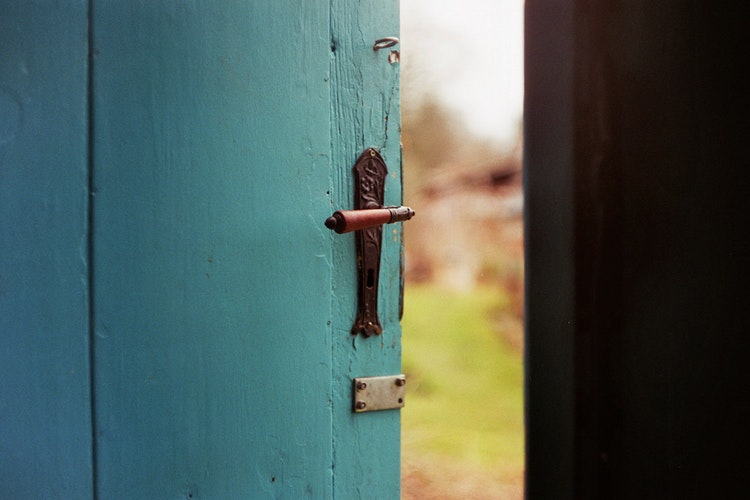
Whatever you do, push the boundaries of that little 2% of outdoor time that we as a society have carved out for ourselves. Maybe try 5%, then 7%, then beyond.
As you repair the connection to the earth that has been severed by the modern day lifestyle, soak in the feeling of “wholeness.” Let the anxiety and stress weighing on your mental self drop away and discover who you really are.
Because you are a natural being, and it’s time to take your medicine.

I you have any questions, comments, concerns or would like to discuss any of this further, drop a comment below!
- Diffey, B. (2011). An overview analysis of the time people spend outdoors. British Journal of Dermatology, 164(4), 848-854. doi:10.1111/j.1365-2133.2010.10165.x
- Klepeis, N. E., Nelson, W. C., Ott, W. R., Robinson, J. P., Tsang, A. M., Switzer, P., . . . Engelmann, W. H. (2001). The National Human Activity Pattern Survey (NHAPS): A resource for assessing exposure to environmental pollutants. Journal of Exposure Science & Environmental Epidemiology,11(3), 231-252. doi:10.1038/sj.jea.7500165
- Gullone, E. (2000). The Biophilia Hypothesis and Life in the 21st Century: Increasing Mental Health or Increasing Pathology? Journal of Happiness Studies,1(3), 293-322. doi:10.1023/a:1010043827986
- National Alliance on Mental Illness
- Blanco, C., Okuda, M., Wright, C., Hasin, D. S., Grant, B. F., Liu, S., & Olfson, M. (2008). Mental Health of College Students and Their Non-college- attending Peers: Results from the National Epidemiologic Study on Alcohol and Related Conditions. Arch Gen Psychiatry,65(12), 1429-1437. doi:10.1001/archpsyc.65.12.1429.
- Bhujade, V. M. (2017). Depression, anxiety and academic stress among college students: A brief review. Indian Journal of Health and Well Being, 8(7), 748-751.
- American College Health Association. (2014). Spring 2014 Reference Group Data Report. National College Health Assessment.
- Capaldi, C. A., Dopko, R. L., & Zelenski, J. M. (2014). The relationship between nature connectedness and happiness: A meta-analysis. Frontiers in Psychology, 5. doi:10.3389/fpsyg.2014.00976
- Hug, S., Hartig, T., Hansmann, R., Seeland, K., & Hornung, R. (2009). Restorative qualities of indoor and outdoor exercise settings as predictors of exercise frequency. Health & Place, 15(4), 971-980. doi:10.1016/j.healthplace.2009.03.002
- Weng, P., & Chiang, Y. (2014). Psychological Restoration through Indoor and Outdoor Leisure Activities. Journal of Leisure Research,46(2), 203-217. doi:10.1080/00222216.2014.11950320
- Miles, J. (1987). Wilderness as Healing Place. Journal of Experiential Education, 10(3), 4-10. doi:10.1177/105382598701000301
- Plotkin, B. (2014). Rewilding Psychology. Ecopsychology, 6(1), 2-4. doi:10.1089/eco.2013.0052
- Wolsko, C., & Lindberg, K. (2013). Experiencing Connection With Nature: The Matrix of Psychological Well-Being, Mindfulness, and Outdoor Recreation. Ecopsychology,5(2), 80-91. doi:10.1089/eco.2013.0008
- Berman, M. G., Jonides, J., & Kaplan, S. (2008). The Cognitive Benefits of Interacting With Nature. Psychological Science,19(12), 1207-1212.
- Kaplan, S. (1995). The restorative benefits of nature: Toward an integrative framework. Journal of Environmental Psychology, 15(3), 169-182. doi:10.1016/0272-4944(95)90001-2
- Howell, A. J., Dopko, R. L., Passmore, H., & Buro, K. (2011). Nature connectedness: Associations with well-being and mindfulness. Personality and Individual Differences, 51(2), 166-171. doi:10.1016/j.paid.2011.03.037
- Kaplan, S. (2001). Meditation, Restoration, and the Management of Mental Fatigue. Environment and Behavior, 33(4), 480-506. doi:10.1177/00139160121973106
- Richards, K., & Peel, J. (2005). Outdoor Cure. Therapy Today, 5-8.
18 thoughts on “Take Your Medicine – Mental Health and Nature”
hello, Great article.
I have gone out of my way to never create a facebook, twitter or Instagram account.
I love the outdoors so much. I do live on the Island of Aruba. I kayak, windsurf, fish, spearfish and much more. You can not but that kind of therapy and the feeling of just being alive.
I see people try to buy their happiness with stuff all the time, new phone, expensive headphones and other weird gadgets.
Also you do not need to go far away to get away from all of your problems. People think that they need a vacation in a foreign country to “get away”. Just go for a walk and be mindful of what you are doing.
Pay attention to your surroundings, sunrise or sunset are just as beautiful on an island as they are in the city, you just have to look for those moments. If you hate your job, city or the people you surround yourself with, change it, don’t bitch about it.
my dream is to go to Ireland and look at the beautiful country side.
I really did enjoy this article and hope that it finds many more people.
Aruba sounds amazing! And I completely agree. Even if you can’t go up to the mountains or the beach, everyone can just get outside and take a walk. Being mindful of your surroundings is important too! I hope you make it to Ireland soon!
Hey Mariah,
Firstly I would like to thank you for writing this informative and educative article. The topic you have chosen is really unique but very important. All of us suffer from anxieties for various reasons. But going out and having fun with friends in the outdoor can vanish all the stuff in a moment. Even whenever I go out biking with my friends I feel so relaxed and just inhale the good stuff from nature. I found your article very helpful so I am going to share it with everyone.
Thank you for this amazing article.
Hi! I’m glad you enjoyed it! I hope it’s inspired you to get outside and ride your bike even more often 🙂
You’re right. There’s some sort of connection. I can’t really place it but I get a feeling of calming and relaxation almost as soon as I’m out in nature. I don’t kow if it’s the disconnect from work life or what but it’s measurable. It’s something I can’t seem to replicate when I’m back home.
I had no idea of the statistics. 2% really? Wow…that’s kinda sad.
I love that correlation of fear. Snakes is a big one for many and you’re right, they probably won’t encouter them. It’s not logical. Car accidents, murder, illness and so on should be on that list above snakes. It’s interesting to think about the underlaying cause.
I’ll admit, when I think about relaxing it’s the hot tub at the house or maybe going out to a movie but I don’t get the same sense of rest as I do if I go camping or spend the day out at a park or hiking. It’s something to think about. In fact, my birthday is tomorrow. Maybe I should take it off and head to the mountains for a bit.
I don’t want to open a can of worms but this has me worried about how our environment is changing and if these areas that we are subconsciously attached to will be there in a few years.
Thanks for the great post. It’s a lot of info and gets me thinking,
Scott
You bring up a good point! I thought about the issue of shrinking natural spaces as I was writing this article as well. I chose not to specifically make any statements about environmentalism or conservation because I thought that would add a whole ‘another dimension to this post and I didn’t want to distract from the main purpose.
But I’ll say it here in the comments. If we lose our natural spaces, we humans are in BIG trouble. So we definitely need to all be aware of the choices we make, the products we buy, etc.
In any case, I hope you do give yourself the birthday present of a mountain day off 🙂
Hi, Mariah, your post brings a lot of perspective in mental awareness. I would have to agree that we almost create our own mental illness because of the things we see all around us. There is no doubt in my mind that creating more time for outdoor activities has a lot to do with your well being. I’ll give an example I have never had any issues with my health up until 2 years ago when I started getting what I diagnosed to be anxiety. This happened when I removed myself from the city of NY to live in FL. Could it have been that I was used to being surrounded by buildings? Was this all in my head? I had to recondition my mind to believe that I don’t have any anxiety which luckily dissipated over time mind you I was on anxiety meds. Do you think a change in scenery could have caused that? Thanks for sharing
I’m no psychologist (not even close) but I think that the experience of moving to a new state brings with it a host of stressors that could potentially have triggered some anxiety. When things like this happen, it’s even more important to take some personal time in the outdoors and let your innate connection to nature help relieve that stress and anxiety.
Of course, there are also times when medication or other treatments are necessary as well, there is no shame in that either.
This is a wonderful article, I love it! The Biophilia hypothesis you describe makes a lot of sense – oh and it’s true, I’m definitely more afraid of snakes than cars lol. I have suffered with anxiety for many years. Relaxing in nature really does tend to ease it. I will bookmark your page and check back. Thank you for this great piece!
Hi Shannon! I think the Biophilia hypothesis just makes so much sense and it’s so interesting to learn about, that’s why I wanted to share it in this article. I’m glad you enjoyed it.
So much of this piece resonated with me. I absolutely agree that your mental and physical health do work hand in hand and that spending time in nature can be beneficial for both. We’ve got all this free healing and preventative healing resources (nature) right at our fingertips, yet we forget this and choose convenience…
I thoroughly enjoyed this article and found the information about Biophilia especially fascinating and enlightening. Many things clicked into place in my head after reading about this!
Yay, I’m off to spend some time outdoors 🙂 Thanks for the inspiration!
Yay for outdoor time! I agree that Biophilia is fascinating. E. O. Wilson’s book about Biophilia is pretty fascinating as well albeit a little dense.
This is an awesome Article. I always knew I feel better after spending some time outside but this really explains it. Scientifically! and not just “because its how I feel.” Thank you. I plan to share this and come back to read more!
Hi Ashton! Glad you enjoyed it. Thanks for sharing my article!
So glad to read this article. It just proves that we are really connected to nature.
I used to live in a city. Then, 16 yrs ago we moved to a little town in BC. It’s really a small town with only 5,000 population. Houses are far apart, lots of fields. Our downtown is just a tiny one little street with few stores and restaurants. Then you can see the beautiful Hudson Bay Mountain. It’s just breathtaking!
So, whenever we go to a city, I’m not at ease anymore. I guess because I know how it is to be closer to nature.
This is really a very good article. Thanks for sharing.
All the best!
Hey Hanna!
I am not a city person either. Everything just feels closed off and dirty to me. That being said, I know some people love city life. And if you’re one of the billions of people that live in cities, that’s no excuse to not get outside. Hopefully, there is a good city park nearby or you can take a day off to drive somewhere a bit farther away.
My point is that wherever you live, you can at least step out the door and take a walk. That’s better than nothing and it’s something that everybody needs!
I love this article. It has helped me renew my resolve to get out into nature as much as I can. I know it is healing and something I really need, to stay healthy. Right after reading it, I encouraged my family to go on a barefoot walk in our neighborhood. It was great and we made it back just in time to get in before it rained. 🙂
That’s awesome!